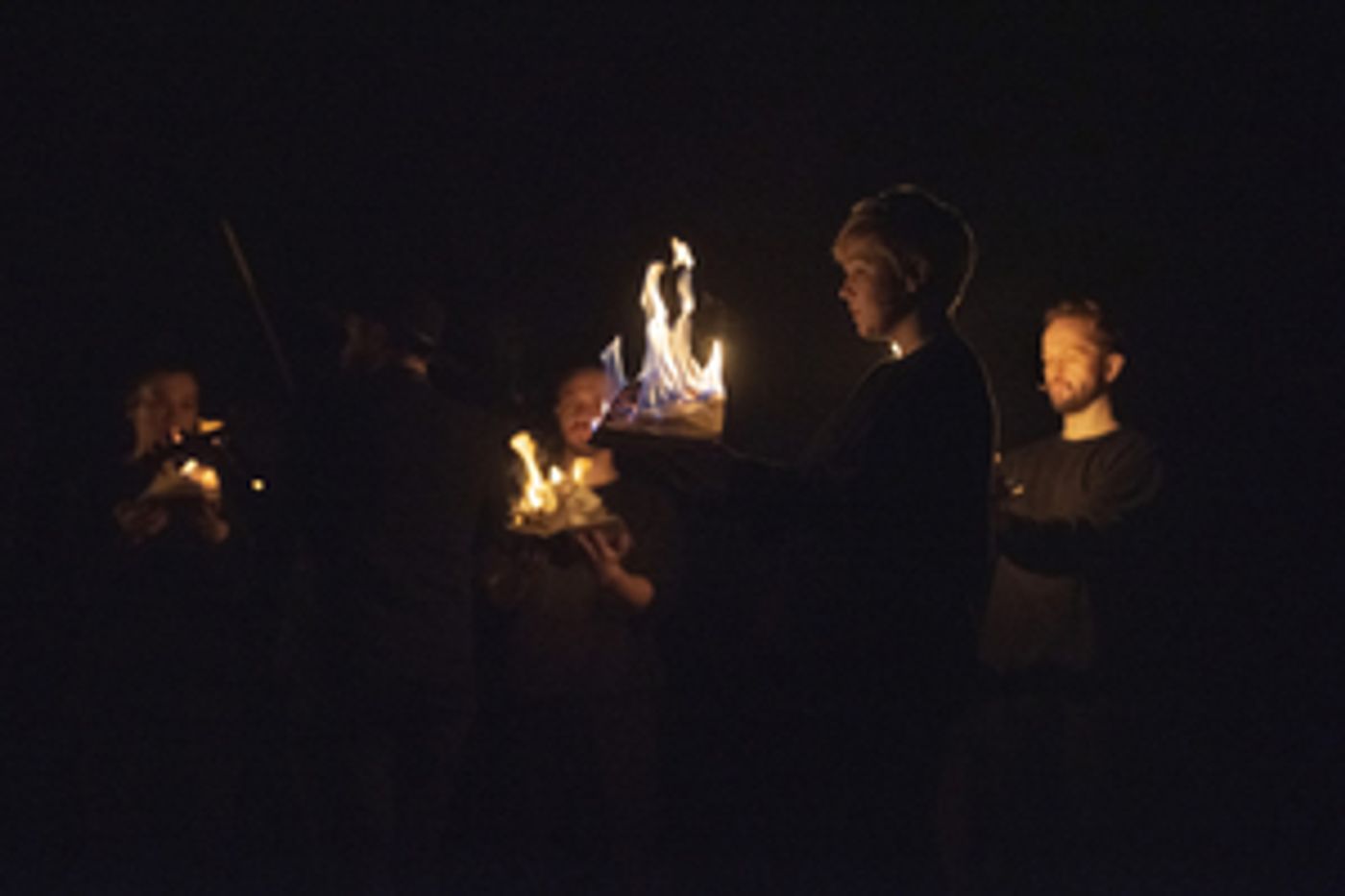Review: DOGS OF EUROPE, Barbican
Belarus Free Theatre’s prophetic vision of a fractured Europe comes to the Barbican for four performances.

![]() Every member of the Belarus Free Theatre has spent time in jail at the hands of Alexander Lukashenko's regime. Some have even been tortured.
Every member of the Belarus Free Theatre has spent time in jail at the hands of Alexander Lukashenko's regime. Some have even been tortured.
Their new play Dogs of Europe is a powerful cacophony of visceral imagery, music and poetry that paints a haunting vision of fractured identities, nations, and narratives. It is unsettling to watch because it is a future that is increasingly tangible. First performed in Minsk in 2020, directors Nicolai Khalezin and Natalia Kaliadas's allegory has become prophecy as the brutal invasion of Ukraine continues.
Dogs of Europe tells a splintered narrative, with two separate stories woven together by a shared dystopian world. The first act sees a schoolboy befriend a spy who has crash-landed in his Belarusian town inside of the newly formed Russian Reich. The identity of the Belarusian town is slowly eroding, swallowed by the Russian Empire - furthered by the arrival of a Russian major to hunt the spy.
The townspeople sycophantically oblige him; a one-armed accordion player even haphazardly serenades him, a fittingly absurd image that is as comic as it is tragic. It is a testament to the directors' ability to find comedy in the most haunting of situations and the electricity of the ensemble cast who draw as much on Buster Keaton as they do Brecht.
The future and history collapse into each other as the second act explores the "League of European states", eerily reminiscent of the doomed League of Nations and its Panglossian fantasy of a unified world. A German agent, portrayed by Aliaksei Naranovich - who played the schoolboy in the first act - is tasked with identifying an anonymous Belarusian poet. Except that Belarus, its culture, and its language are almost nothing but a faded memory. The world of Dogs of Europe is haunted by a resuscitated Cold War paranoia, an all-too-familiar anxiety once thought confined to the history books.
The cast rely on a collage of rich symbols to fill in the gaps in the narrative. The recurring motif of books is particularly striking. Sometimes they are tossed about the stage like debris. Sometimes they are ritualistically burned - an eerie symbol of censorship, oppression, and fascism that recalls the early days of Nazism in Germany before World War Two.
Yet this time, the allegory has become reality as the book that Dogs of Europe is based on, by Alhierd Bacharevic, has been banned in Belarus. But fire can be more than destruction. A burning book can also be a dangerous book, the threat of the ideas it contains in the eyes of an authoritarian regime. Brecht once wrote: "Hungry man, reach for the book: it is a weapon." By adapting Dogs of Europe, the Belarus Free Theatre have done exactly this.
Dogs of Europe at the Barbican until 12 March
Photo credit: Linda Nylind
Reader Reviews
Videos

